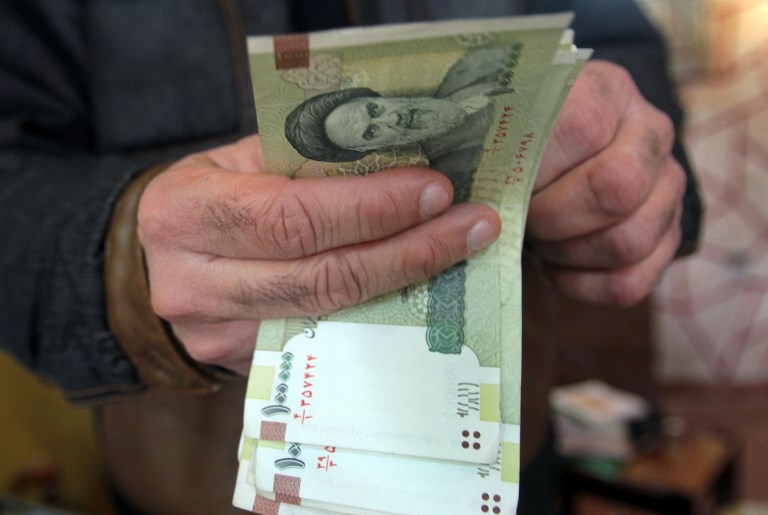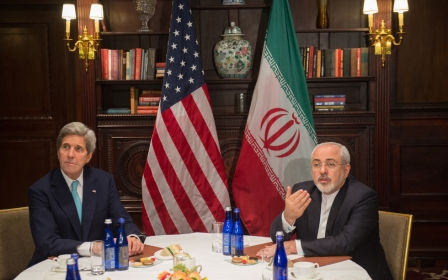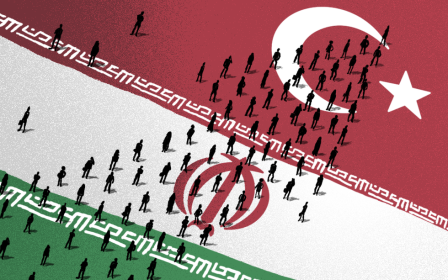European visas don't come cheap on Iran's latest black market

TEHRAN – As the economy has continued to slide under renewed US sanctions, Iranians have found a smattering of products, like diapers and tomatoes, in short supply.
But perhaps the most difficult of all items to get one's hands on? A European visa.
From taxi drivers to university students, more Iranians are thinking of leaving the country for a better life free from the pressure of sanctions.
The closest date for an appointment is late 2019 and early 2020. This is ridiculous
- Kouroush Jahani, Iranian student
Although official statistics haven’t been released, a government adviser and economist put the figure of those trying to emigrate at 1.5 million, which he said was “a scary number”.
That was back in December, before US President Donald Trump cancelled the nuclear deal and slapped sanctions back on the country, sending the value of the rial into a tailspin.
Obtaining a visa, however, causes an entirely new set of obstacles. Lines of people have been wrapped around the block at European embassies in Tehran.
And these are the lucky people: they already have appointments, unlike student Kouroush Jahani.
"I went to the German embassy two months ago, and I also checked their website. I realised the closest date for an appointment is late 2019 and early 2020,” Jahani told Middle East Eye. “This is ridiculous.”
Sahar Mostofi, another student trying to apply for a German visa, said she had already started talking to professors in Germany, which is where she dreams of studying philosophy. But she was also told the earliest she could apply is next year.
“Their answer was shocking for me - as if someone had thrown a bucket of cold water on me”, she said.
A third student, Farshad Hasani, who wants to study in Italy, thought he might be in luck: he was told to register on the embassy’s website, which said appointments could be made during certain hours.
“But when I entered those few times, no appointment was available,” he said.
'We can get you a visa'
As the students have plodded on in frustration, an entire industry of visa middle men and companies, bridging the gap between supply and demand, has emerged.
For roughly $1000 – which is equivalent these days in Iran to three months of rent in a well-heeled neighbourhood – companies promise to shortcut formalities and secure appointments at a visa seeker's embassy of choice. They even promise visas.
It is impossible for you to get an appointment time and visa soon if you want to apply all by yourself
- Company representative
Different companies claim to have different specialities. One says it can get Italian visas. Another advertises opportunities to help customers get visas to the US.
MEE called one of the companies, asking what it would take to move to Italy and study there.
“It is impossible for you to get an appointment time and visa soon if you want to apply all by yourself,” said a company representative. “We can get you a visa for $1,000.”
But it’s not only companies. Mostofi, one of the students hoping to go to Germany, said she has seen individuals offering theses kinds of services outside of embassies.
“They are middle men working on their own and aren’t related to the tourism companies. I asked one of them, and he surprisingly told me: 'I would get you an appointment time for the next month and the fee is 2,500 euros ($2,907)'."
In reaction, Iranian students staged a protest in front of the Italian embassy, criticising low staffing numbers and slow response times to their applications.
“Please do not deprive us of education,” said one banner.
“We are about 200 eligible students who provided all the required documents,” said another.
Hasani, the student who wanted to go to Italy, told MEE: "I'm really angry with the dishonest behaviour of the embassies and tourism companies. They are swindling us. I'm a student and why should I pay $3,000 to a tourism company? This situation is frustrating everyone."
The German embassy is among those with the longest waits. On its website, those applying for student visas are told that they may wait more than 12 months for their visa, which many say jeopardises their plans.
Earlier this year, the Berlin prosecutor's office announced that it was investigating bribery allegations in Germany’s embassies in Tehran and Beirut. A spokesperson for the prosecutor told journalists that Iranians had paid between 5,000 and 10,000 euros ($5,756 - $11,531) in bribes for visas.
Should a company offer to 'sell a visa', such a visa could only be fake. Our appointment system follow strict quality criteria
- Spokesperson, German embassy in Tehran
The German foreign office told MEE it is aware of the prosecutor's investigation, but did not have any information about allegations against employees at the German embassy in Tehran. The prosecutor's office did not reply to two emailed requests for comment and further details about the status of the inquiry.
A spokesperson from the German embassy in Tehran told MEE: "The embassy has no information about an alleged 'sale' of visas to students. Should a company offer to 'sell a visa', such a visa could only be fake. Our appointment system follow strict quality criteria."
The Italian embassy in Tehran and the Italian foreign affairs ministry in Rome did not respond to repeated email requests for comment.
Waiting in limbo
Even Iranians who aren’t applying for visas have expressed their frustration over the long waits.
Omid Shokohi, an Iranian describing himself as a French translator, tweeted on 19 August about a photo that was circulating showing the German ambassador to Iran with a man from a major tribe in Iran. Even the tribesman wouldn’t get a visa, he quipped.
Translation: Imagine if this dear Bakhtiari man (a tribe in Iran) wants to go to Germany for ten days. [He must be stranded] for the [appointment] of the embassy for few months, [and must give] house documents, invitation letter, insurance and thousands of other damn things, and after few months he will [eventually] get rejected. Why? Because the impolite staff of the embassy liked to reject him and in [their] view, [this man] doesn’t have the qualification to enter the Germany soil.]
In reaction, Iranian foreign minister spokesperson Bahram Qassemi recently said: "We have received reports from the Iranian citizens about the actions of the Italian and Germany embassies. We are currently studying this issue."
He added: "Our advice to the foreign embassies in Tehran is to protect the rights of Iranian citizens and present them with the proper and comprehensive consulate assistance."
But the government has not made any interventions to change the situation, so students say they are now waiting in limbo.
Jahani, who is still unable to get an appointment with the German embassy, said: “I'm not completely disappointed. I was admitted to university, but my plan is torn apart now. I have to wait for several months. During this period, I will also focus on some other countries. I will do my utmost efforts to get a visa."
But he added: "If I find a good job in the next few months with a satisfactory salary, I will stay in my country."
This article is available in French on Middle East Eye French edition.
New MEE newsletter: Jerusalem Dispatch
Sign up to get the latest insights and analysis on Israel-Palestine, alongside Turkey Unpacked and other MEE newsletters
Middle East Eye delivers independent and unrivalled coverage and analysis of the Middle East, North Africa and beyond. To learn more about republishing this content and the associated fees, please fill out this form. More about MEE can be found here.




